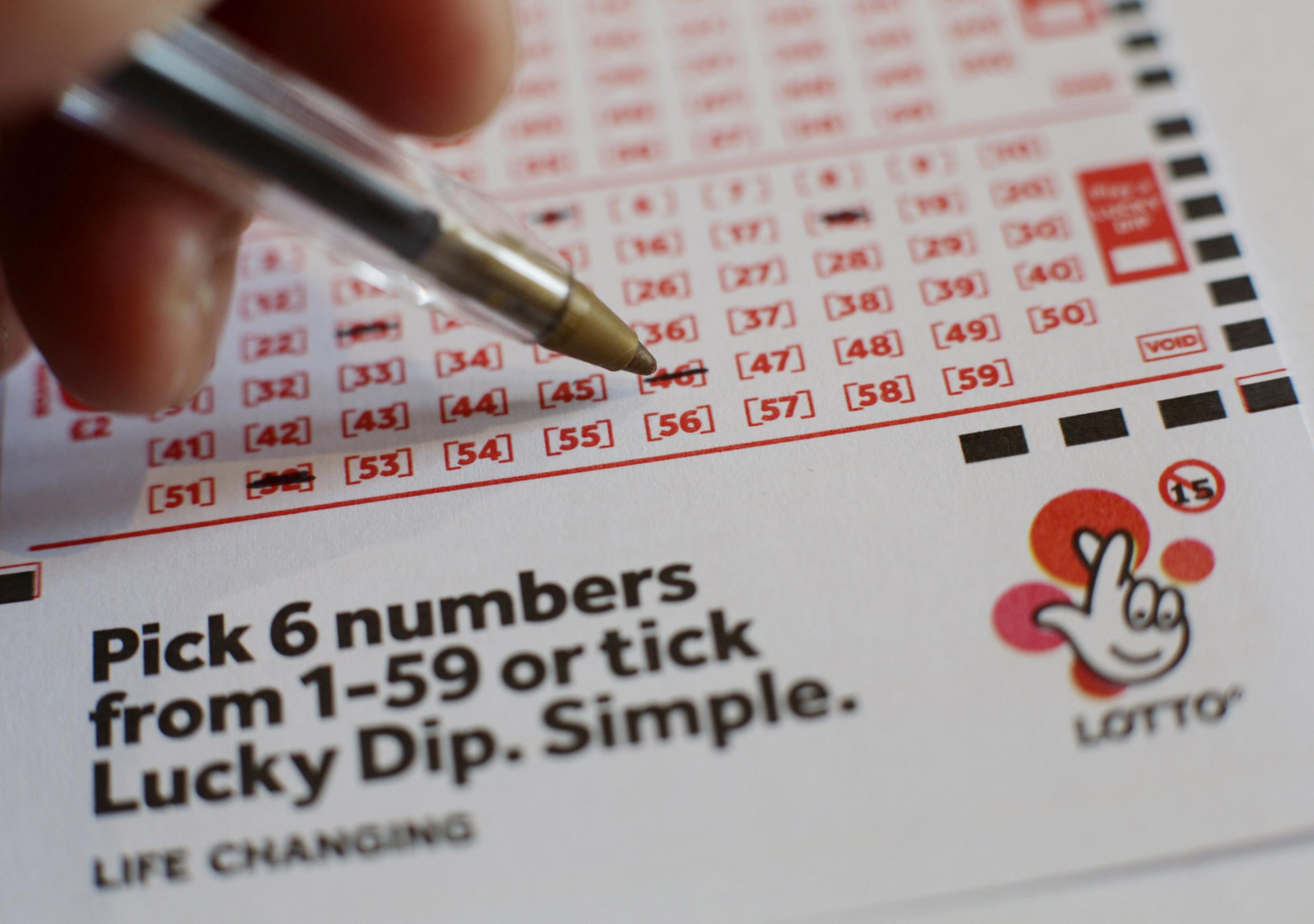National Lottery provider Camelot increases profit by £39m as returns for good causes decline
Public Accounts Committee says money for charitable causes such as sport and art fell by 15 per cent in the last financial year

Your support helps us to tell the story
From reproductive rights to climate change to Big Tech, The Independent is on the ground when the story is developing. Whether it's investigating the financials of Elon Musk's pro-Trump PAC or producing our latest documentary, 'The A Word', which shines a light on the American women fighting for reproductive rights, we know how important it is to parse out the facts from the messaging.
At such a critical moment in US history, we need reporters on the ground. Your donation allows us to keep sending journalists to speak to both sides of the story.
The Independent is trusted by Americans across the entire political spectrum. And unlike many other quality news outlets, we choose not to lock Americans out of our reporting and analysis with paywalls. We believe quality journalism should be available to everyone, paid for by those who can afford it.
Your support makes all the difference.National Lottery provider Camelot’s profits have increased by £39m since 2010 while returns on good causes declined last year, a group of MPs have reported.
The Commons Public Accounts Committee (PAC) said that lottery funding for areas such as arts, sport and heritage were under threat as it warned the current licence arrangement lacked flexibility.
According to the PAC, good causes lost out when the Gambling Commission did not include a break clause in the 2012 renegotiation of Camelot’s contract to operate the National Lottery, meaning terms could only be changed with Camelot’s agreement.
Since then, Camelot's profits increased to 1 per cent of sales after tax, rather than the 0.6 per cent anticipated by the commission in the original 2009 licence, while returns for good causes had fallen from 27p per pound spent in 2009-10 to 22p in 2016-17.
The MPs added that Camelot’s profits were 122 per cent higher in 2016-17 than in 2009-10, increasing from £32m to £71m. During the same period returns for good causes increased by only 2 per cent but decreased by 15 per cent in the last financial year.
Meg Hillier, the PAC chair, said “lessons must be learned” from the renegotiations of Camelot’s licence in 2012, which she said was “too generous to the provide and too inflexible” to protect the interests of grant recipients.
“Raising money for good causes is one of the founding principles of the National Lottery but this objective is under threat,” she said. “It would be sad and significant loss to many deserving organisations and individuals if that funding, which has amounted to some £37bn since 1994, should dissipate as a result of inaction now.
“It is a stark illustration of the challenge to be tackled that figures for that final year, 2016-17, show a drop in good causes’ year-on-year income of 15 per cent.”
The report added that the current operating licence was not flexible enough to protect the interests of good causes as player behaviour changed, specifically as scratch cards and instant-win games became more popular while sales of draw-based games declined.
Returns for good causes are much lower for scratch cards at an average of 10p in the pound than for draw-based games at around 30p.
Camelot has said that scratch cards and instant-win games return less to good causes due to the need to offer a higher proportion of proceeds as prizes to encourage consumers to participate.
Ms Hillier added: “The detrimental effects of tinkering with the format of the lottery, and a decline in public awareness of its support for good causes, are also clear. There must be a renewed focus on delivering returns for good causes and action to ensure these funds can be managed in a sustainable way.
“That should include government providing real-time data to the 12 public bodies responsible for distributing lottery funding, to enable them to manage their programmes effectively and ensure grant commitments are affordable.”
A Camelot spokesperson replied: “We note the contents of today’s report, and will continue to work with the Gambling Commission, Department for Digital, Culture, Media and Sport, and the National Lottery distribution bodies to maximise returns to good causes. During the third licence period, annual returns to good causes have been, on average, 30 per cent higher than under the previous licence.
“We’ve already seen some encouraging signs that the initiatives from the strategic review that we carried out last summer are working, and are confident that we have strong plans to get the National Lottery back into growth.
“The National Lottery has been, and continues to be, a massive success. Around 60 per cent of UK adults currently play National Lottery games and, to date, we've made over 4,750 millionaires. National Lottery players have raised £37bn for good causes. This equates to more than 525,000 individual awards made across the UK – an average of over 185 lottery grants in every community.”
Join our commenting forum
Join thought-provoking conversations, follow other Independent readers and see their replies
Comments